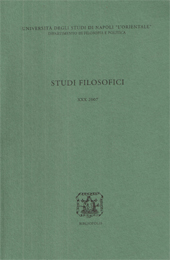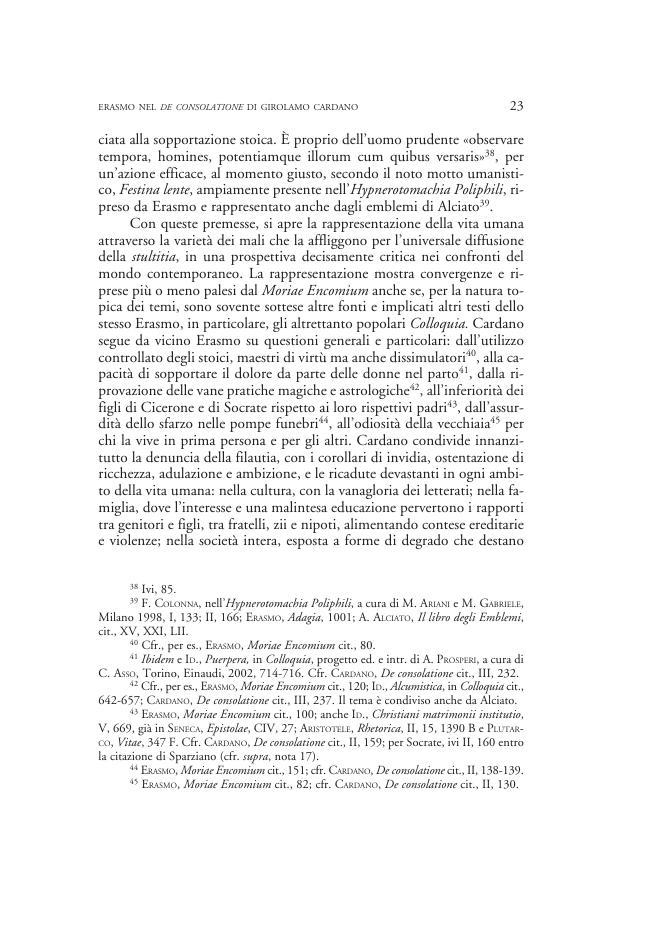«Ad te igitur primum venio» : Erasmo nel De consolatione di Girolamo Cardano
P. 13-32
The article analyzes the influence of Erasmus in De consolatione (1542), Girolamo Cardano's first book of philosophy published during his lifetime. Erasmus is first and foremost a moral model for Cardano. His writings, especially Adagia and Moria, are a reliable source for his use of the humanistic tradition. From them, Cardano takes examples, dictums and considerations. Above all, he borrows their rhetorical method to criticize, comfort and try to convince men living in stultitia, deception and illusion. Cardano shares with Erasmus a censure of contemporary society, but is pessimistic about the possibility of an effective Christian moral reform. The De consolatione already gives us a glimpse of his awareness of the limits of Erasmus' project. The De utilitate ex adversis capienda (1561) will make this criticism explicit. At the same time, in it Cardano will clarify his new point of view and its difference from the one he had adopted in the De consolatione. [Publisher's text]
-
Articles du même numéro (disponibles individuellement)
-
Informations
Code DOI : 10.1400/286040
ISSN: 2038-6613



